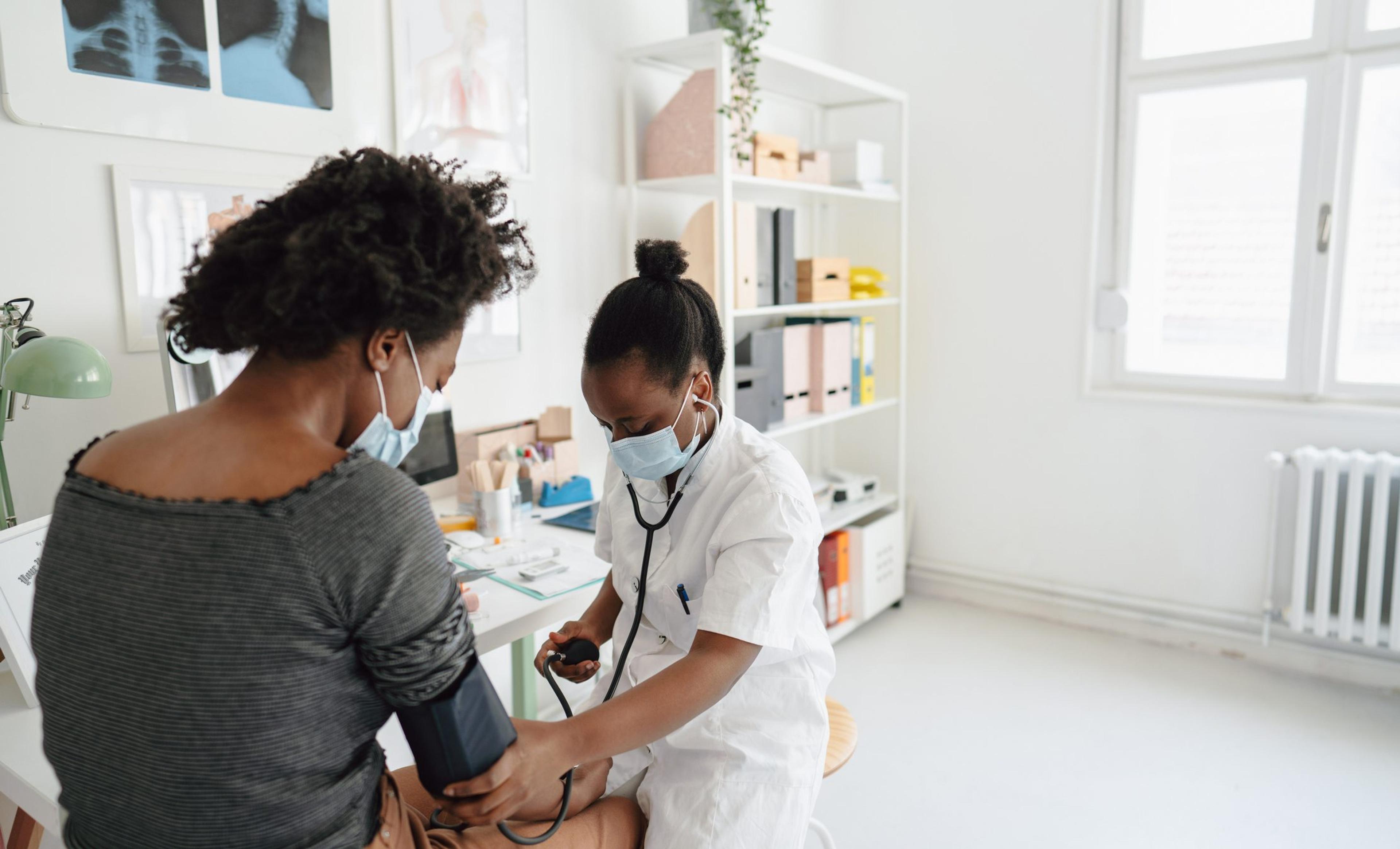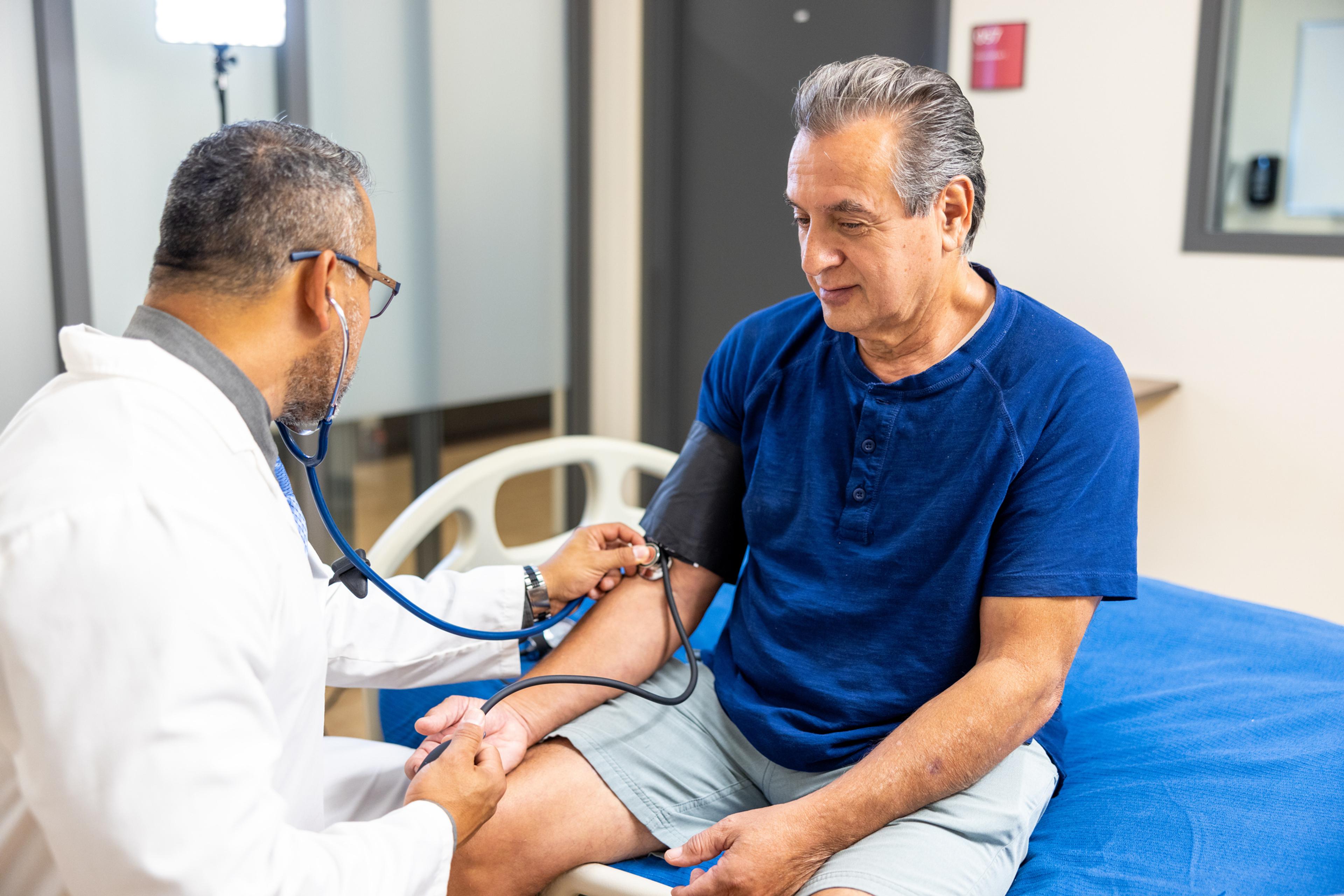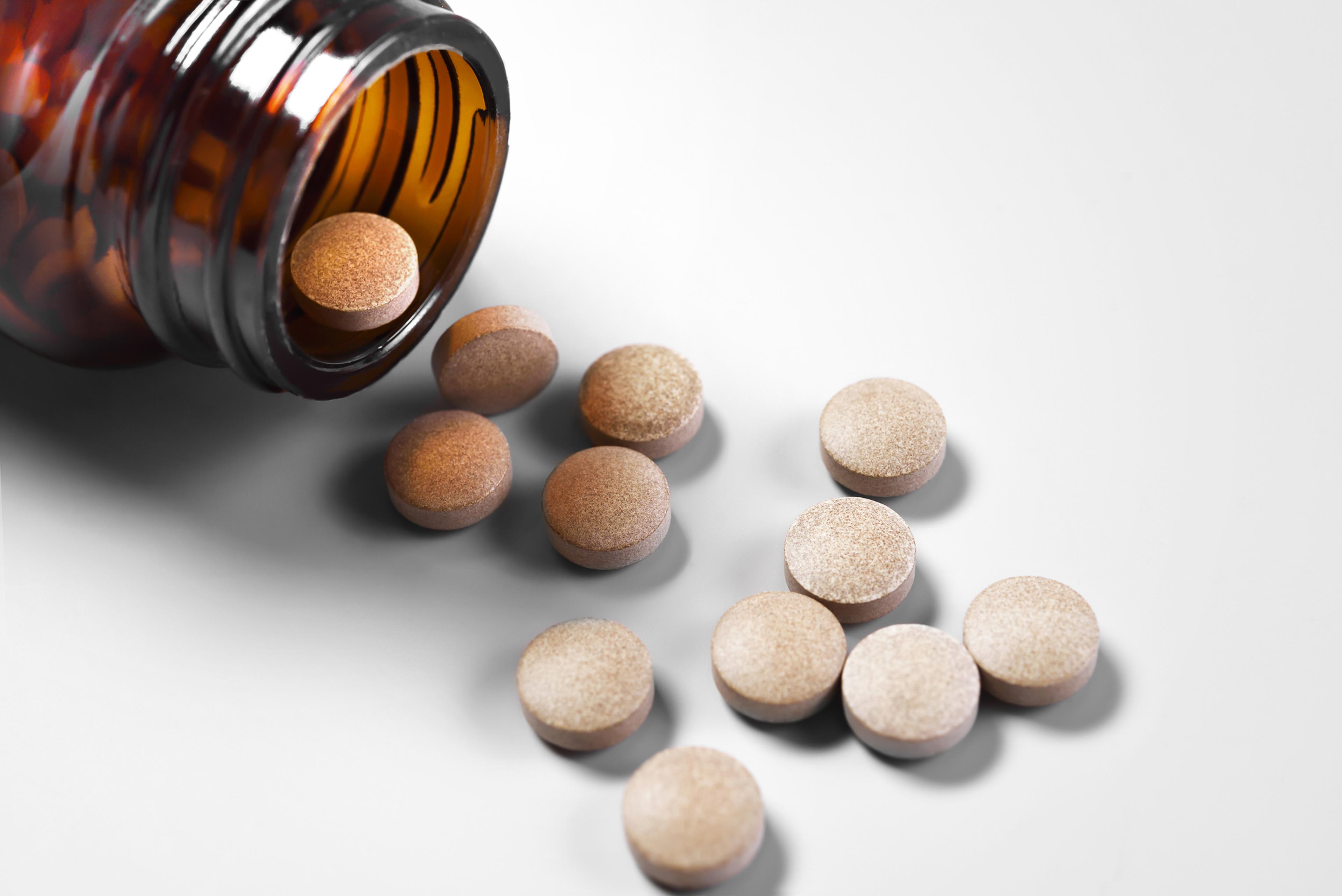
If left untreated, high blood pressure (hypertension) can put a person at risk of developing life-threatening conditions such as stroke, kidney failure or heart disease. High blood pressure has been called the “silent killer” because you may not have symptoms. More than 100 million adults suffer from high blood pressure in the United States, which equates to about one in every three Americans. Genetics, chronic conditions, smoking, poor dietary habits, and a lack of physical activity are some of the condition’s leading causes. According to the American Heart Association a normal blood pressure reading is less than 120 and less than 80. Blood pressure is measured in millimeters of mercury (mm Hg). The top number of your reading (systolic) should be below 120 mm Hg while the bottom (diastolic) number should be below 80. High blood pressure or hypertension at stage 1 is a systolic pressure of 130 or greater and a diastolic pressure greater than 80. Anything higher than 180 systolic and 120 diastolic is considered hypertensive crisis and you should see your doctor right away. If you have high blood pressure and would like to avoid taking medication, there are lifestyle choices you can make to help reverse the condition’s potentially deadly effects. However, you should abide by your doctor’s recommendation if medication is prescribed.
Eat less salt
A diet high in sodium draws water into the bloodstream, increases the volume of blood and boosts blood pressure. The 2020-2025 Dietary Guidelines for Americans recommend consuming less than 2,300 milligrams of sodium per day. However, the average American eats around 3,400 mg of sodium per day. Aim for a sodium intake of less than 2,000 mg per day as you work to correct your blood pressure.
Boost potassium intake
The more potassium you eat, the less tense your blood vessel walls become, and the more sodium you lose through urine, according to the American Heart Association. Some of the most potassium-rich foods include: Bananas, oranges, cantaloupe, cooked spinach, cooked broccoli, mushrooms, peas, cucumbers, and orange, tomato, prune, apricot, and grapefruit juices.
Exercise regularly
Regular physical activity controls high blood pressure and helps you lose weight. Exercise is a major tension reliever for your heart and stress levels. Most people should try to get about two hours and 30 minutes a week of moderate to intense physical activity. This breaks down to 30 minutes of exercise per day, five days a week.
Limit alcohol
Drinking excessive amounts of alcohol can raise your blood pressure by several points. The Centers for Disease Control and Prevention (CDC) recommend that women have no more than one drink per day and men have no more than two drinks per day. Blue Cross Blue Shield of Michigan and Blue Care Network can help members find an in-network substance use provider. Click here for information relating specifically to those with PPO and HMO plans.
Quit smoking
The nicotine in cigarettes and other tobacco products can narrow your arteries, harden their walls, and speed up your heartbeat. Putting together a plan to stop smoking can lower blood pressure and reduce your risk of suffering a heart attack or stroke. Blue Cross and the BCN also offer tobacco coaching and an online coaching program to help members quit smoking.
Get better sleep
Most adults need between 7 to 8 hours of sleep each night. Regularly failing to hit that mark can put you at risk of high blood pressure and heart disease, according to the National Heart, Lung and Blood Institute. Ask your doctor for tips on getting quality sleep, especially if you already have high blood pressure. Related stories:
- Exercise After COVID: Michigan Runner Races Again After ‘Severe’ Bout with Virus
- Living with COPD: Michigan Resident Gives Advice on Staying Active
- Why Women are More Susceptible to Thyroid Disease
Photo credit: Getty Images





